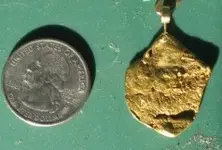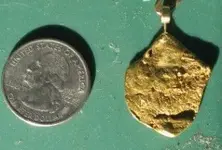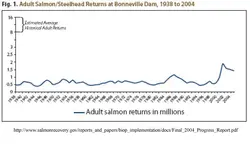k guys last post, but its like others have said, time to step up to the plate and support those in the Capital that support us
if AB120 SEC 12 is allow to pass its like being put to the back of the bus
fisherman wade in the waters 2.8 million fishing license in 2010
rafters launch and take out, can't get a head count on this one
all kinds of people hike, camp, swim in the rivers
2cmorau
This is what sierra club has to say
http://www.sierraclub.org/ca/ click on this link and see what else they are up too, hey fisherman think you have it made LMAO
New Suction Dredge Regulations Threaten Fish, Frogs, Water Quality, and People!
The California Department of Fish and Game (CDFG) has released new proposed suction dredge
mining regulations for California rivers and streams and is seeking public comments. Now you
have the opportunity to speak out for the protection of rivers, fish and wildlife, water quality, and
public health! Please write a letter TODAY and/or plan on attending a public hearing near you.
Background
Up until recently, suction dredge mining for gold has been pervasive on many California rivers
and streams. This form of mining uses a powerful motor and pump, attached to a hose that is
used to suction up gravel from the stream bottom. Gold is then sorted out from the gravel and the
remaining sediment-laden water is flushed back into the stream. The adverse impacts of this
mining are well documented by scientists. Suction dredging can harm habitat for sensitive,
threatened, and endangered fish and frogs, as well as release toxic mercury left over from the
Gold Rush into the stream.
Previous state regulations failed to recognize these impacts and a lawsuit filed by Indian Tribes
and other organizations forced the agency to develop new regulations. In the meantime, the
California Legislature approved a moratorium on suction dredging that has been in effect since
2009. But if the new proposed regulations are adopted, destructive suction dredging will return to
many of California’s most sensitive rivers and streams.
Unfortunately, the new regulations are a hodge-podge of some good but mostly weak and nonexistent
restrictions that fail to fully protect endangered steelhead, salmon, frogs, and other
species. The new regulations fail to ensure that mining does not harm water quality and human
health with sediment and mercury. Special areas like Wild & Scenic Rivers and Wild Trout
Streams are not protected in the regulations either. In addition, the regulations will depend on
active enforcement from CDFG, which like other state agencies, is suffering from severe budget
cuts.
Just a few examples of the more egregious aspects of the new regulations include:
North Fork American River (Placer County) – This truly wild river was formerly off limits to
suction dredging. But the new regulations allow year round suction dredging upstream of Big
Valley Canyon, which would be harmful to sensitive foothill yellow-legged frog and wild trout.
Adding insult to injury, the proposed regulations also allow the use of larger suction nozzles on
the North Fork. This stream is both a federally-designated Wild River and a state-designated
Wild Trout Stream, neither of which seems to have been considered by CDFG in the
development of the new regulations.
South Yuba River (Nevada County) – One of the most popular swimming rivers in the Sierra
Nevada, the South Yuba under the new regulations will be open to suction dredge mining from
Jul. 1 to Jan. 31. Unfortunately, the river gravels are impregnated with mercury, which was used
to process gold during the Gold Rush. Dredging will release this toxic material into the water,
potentially threatening the health of people and wildlife alike.
Klamath River (Siskiyou County) – The Klamath formerly supported the third largest salmon
population on the west coast. This fishery has dwindled to virtually nothing. The Klamath was
also one of the most heavily dredged rivers in the state prior to the moratorium. Unfortunately,
the new regulations allow suction dredging on the river downstream of Iron Gate Dam from Jul.
1 to Sep. 30. Dillon Creek, a key Klamath tributary that supports the best remaining population
of summer steelhead in the state, was formerly closed but is now open to suction dredging as
well.
San Gabriel River (Los Angeles County) – Portions of the upper San Gabriel River in the San
Gabriel Mountains are closed to dredging in the new regulations. But a segment of the East Fork,
which is critical habitat for the endangered Santa Ana sucker, is open to dredging from Sep. 1 to
Jan. 31. Before the moratorium, the East Fork suffered from some of the most unregulated
mining on public lands in this state. Dredgers were lined up next to each other, turning over the
entire streambed in their search for gold, often diverting the stream into other channels, and
discouraging other visitors from even enjoying the river. The new regulations reinstate the East
Fork as a mining sacrifice area, regardless of the adverse impacts on endangered fish or other
recreation visitors.
CDFG should revise the proposed regulations to put off limits all rivers and streams that provide
critical habitat as well as future recovery areas for all threatened and endangered fish and
wildlife species. All streams that are mercury impaired should also be closed to dredging to
protect water quality, human health, fish, and wildlife. The outstanding and extraordinary values
of state and federal Wild & Scenic Rivers – such as the wild trout fishery of the North Fork
American River – must be specifically protected in the regulations, even if it means that some
streams will be off limits to suction dredge mining. State-designated Wild Trout Streams should
also be closed to mining to protect their fishery values.
In addition, regulations should not depend on active enforcement, given current and likely future
budget cuts. It is simply more realistic to close a stream to mining than to assume that a warden
will be available to ensure that the miner is not dredging within three feet of the stream bank (a
common provision in the new regulations to protect threatened and endangered amphibians,
juvenile fish, and their habitat).
Take Action
Attend the public hearing nearest you. The closest one is in Sacramento: Tuesday, March
29, at 5 p.m., at Cal EPA Headquarters Building, Byron Sher Room, 1001 I Street.
Speak out and support closing rivers and stream to suction dredge mining that:
Provide critical habitat and recovery areas for threatened and endangered fish and
wildlife.
Are mercury-impaired, to protect water quality, public health, fish, and wildlife.
Are federal or state designated Wild & Scenic Rivers and/or Wild Trout Streams.
Could be harmed if there are insufficient wardens in the field to enforce the new
regulations.
OR WRITE A LETTER
Written comments are due by April 29, 2011. Be sure to email your letter TODAY to
dfgsuctiondredge@dfg.ca.gov (please include in the subject line: Suction Dredge Program Draft
SEIR Comments) or you can review the SEIR and proposed regulations, and submit comments
by visiting
www.dfg.ca.gov/suctiondredge.
SAMPLE LETTER (feel free to personalize)
Suction Dredge Program Draft SEIR Comments
California Department of Fish and Game
601 Locust Street
Redding, CA 96001
Dear Department of Fish and Game:
California’s rivers, streams, fish, wildlife, and water quality must be protected from the adverse
impacts of suction dredge mining. The proposed regulations simply do not provide sufficient
protection for these sensitive resources.
Please revise the regulations to prohibit suction dredge mining in all rivers and streams that
provide critical habitat and future recovery areas for threatened and endangered fish and wildlife.
Please close all mercury-impaired rivers and streams to suction dredge mining to protect water
quality, human health, fish, and wildlife.
Please ensure that the extraordinary and outstanding values of state and federal Wild & Scenic
Rivers, as well as the fishery values of state Wild Trout Streams, are fully protected in the new
regulations. Rivers and streams should also be closed to mining if budget cuts result in
insufficient wardens in the field to enforce the new regulations.
Recreational and commercial mining is not a legitimate activity in California if it is done at the
expense of the state’s fish, wildlife, water quality, human health, and state-protected beneficial
uses of our rivers and streams.
Thank you for consideration of my comments,
NAME, ETC.




 .
.


